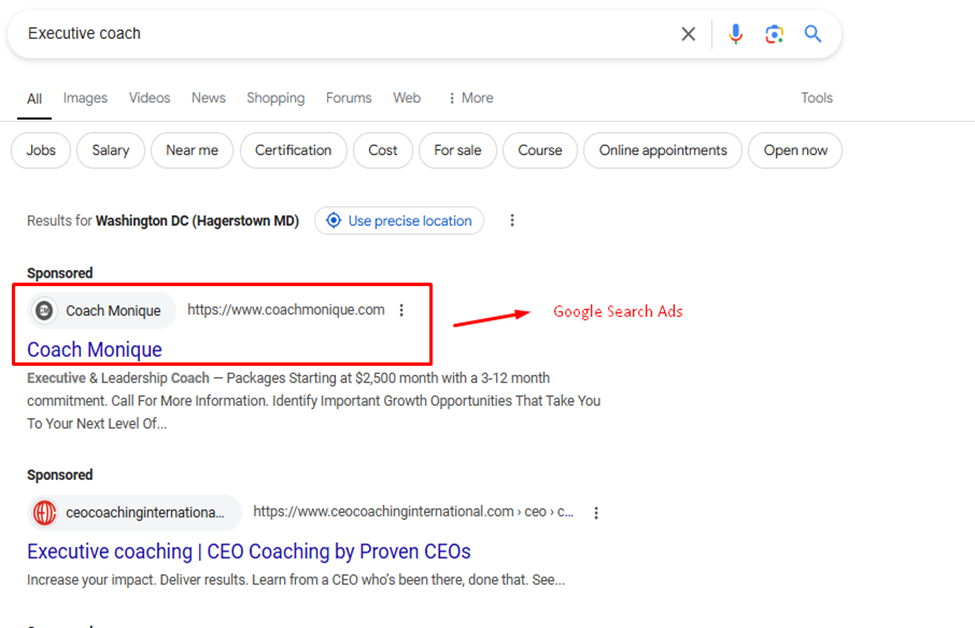How to Market Your Coaching Business: Proven Strategies for Success
You have bundled up your best wisdom in your coveted coaching business and even polished it with some additional resources. Now, unless people know about your package, it won’t simply sell! However, even the best coaches shy away from paddling the streams of marketing. They find it too salesy and pushy to anchor their brand!
However, marketing is inevitable as a coach. Actually, it must be a priority! How else would you stand out in the competitive coaching landscape? Effective marketing strategies are like a definitive compass leading to your clients! Whether you’re a fitness executive or a transformational life coach, here’s how to market your coaching business!
So, are you ready to discover your genius marketing strategy?
Why is it Essential to Market Your Coaching Business?
Before we move on to the best ways to promote your coaching business, let’s discuss the key reasons for promoting it.
With a solid marketing plan, you’ll be able to:
1. Increase Your Visibility and Credibility
Promoting on the relevant platforms and sharing valuable content helps to position yourself as an established authority.
2. Attract the Right Clients
When you promote your coaching services on relevant marketing platforms, you connect with the clients you want!
3. Convert Leads into Actual Clients
Effective marketing techniques, whether organic or paid, win actual clients. The most important aspect is to build trust with testimonials and authentic connections.
4. Gain a Competitive Edge
Coaching is a $6.25 billion industry as of 2024. There were roughly 145,500 active coaches in 2024, everyone competing to gain a foothold. So, only if you market your coaching services enough will you be able to establish your authority.
5. Showing a Unique Value Proposition
Marketing your coaching program often involves highlighting the unique selling points — niche, coaching strategy or results.
How to Market Your Coaching Business: Marketing Strategies
Your coaching package is your product power-packed with the best strategies and expertise. By selling your coaching package, you are highlighting what you can offer and also building your brand and authority in your niche. Building a brand is a whole lot of work, but it needn’t be overwhelming
There are a whole lot of strategies to market your coaching business. Choosing the right strategy could be confusing. Here, we have categorized them into organic and paid strategies:
Organic Methods
Organic methods generate traffic and use natural tactics for optimizing web content and improving search rankings. They don’t involve paid advertising and focus on building long-term visibility.
Here are the best organic marketing strategies to build a loyal fanbase:
1. Social Media Marketing
Social media is a powerful tool in the digital world today, where everyone is socially connected. You need to build awareness and discover lead-generation techniques that fit your needs! LinkedIn, Facebook, Instagram and TikTok are a few popular social media platforms for marketing your business.
You need a social media strategy to engage with your audience. Your social media platform also depends on your niche, goals and objectives. For example, LinkedIn would be ideal for promoting your coaching services if you are a business coach.
Search for relevant Facebook groups and actively participate in discussions. Offer valuable insights and demonstrate your knowledge and expertise.

Source: Step into the Stoplight/Vanessa Talbot
Step into the Stoplight is Vanessa Talbot’s Facebook Group where coaches discuss various niche challenges and offer solutions to overcome them.
Leverage Instagram’s stories to post valuable insights or sneak peek into your personal life. Publish short reels including testimonials, myth-busters, advice, etc.
Optimize your bio by adding relevant keywords to make it easily discoverable, add website links, and direct more traffic to your services.
1. Offer Free Coaching Consultation
If you’re a new coach looking for clients, offer a free coaching call to attract your first set. This is similar to sharing a free trial of your product, highlighting your product’s benefits and unique selling points.
While you might wonder whether offering your services for free is worth it, it is a great starting point. You could schedule a 30-minute free coaching call and address a specific client’s pain point. Share valuable information, create trust, and establish authority in your niche.
A live demonstration of your coaching can help your clients get an idea of your coaching style and the value they can get from your services.
2. Email Marketing
Email marketing is an age-old promotional strategy for your business. Start by building your email list, and keep your audience engaged about your offerings.
You can build your email list from various sources, such as webinars, blog posts, social media posts, and lead magnets. Next, segment your audience based on demographics, customer insights, stages of the sales funnel, etc.
How can you use email marketing to convert your leads into paying clients? Here are a few tried and tested strategies that you can count on:
- Share lead magnets like coaching templates, how-to guides or checklists, cheat sheets, webinars, etc.
- Provide exclusive content like newsletters, tips, industry insights, and blog posts.
- Create attractive discounts and offers on your coaching services.
- Set up automated email sequences for your clients, such as welcome emails, lead magnets, reminder emails, etc.
- Host a giveaway or a challenge for your clients.
- Send nurturing emails to build strong relationships among your clients.
- Leverage storytelling and share important lessons you have learned across your coaching journey.
3. Podcasting
Podcasting is an excellent way to grow your business if you want to establish yourself as a thought leader and build trust. And, if you’re already consumed by social media, podcasts help you offer value and convey the message to your audience.
Before starting your podcast channel, ask yourself why you are starting it. Are you planning to interview personalities or do a solo podcast?
You can invite popular industry personalities, experts and coaches to interview on your podcast. Discuss industry trends and breakthroughs, coaching approaches and philosophy, and relevant niche topics like personal development and personal growth.
Need some quick inspo? Here are some popular podcasting channels for coaching :
- Coaching For Leaders by Dave Stachowiak focuses on leadership growth, professional development, and workplace challenges.
- The Tony Robbins Podcast, hosted by popular life and business coach Tony Robbins, discusses topics such as leadership, happiness, health, business, and relationships.
- The Life Coach School Podcast by Brooke Castillo (a popular life and self-development coach) dispels the strategies of life coaching and explains how to become a certified life coach.
- Finding Mastery Podcast by Dr. Michael Gervais (leading performance psychologist) interviews the most successful thinkers and entrepreneurs to understand the relationship between performance and well-being.
You can even guest interview on relevant podcast channels. Find one based on their niche and reach and one that aligns with your vibe. For example, if you’re a fitness coach, Rdella Training is a popular fitness podcast on which to get interviewed.
4. Webinars, Conferences, Events
Networking and conferences are great for broadening your reach. Attend local industry meet-ups that your clients might attend; this way, you build your network. Use online events like webinars to connect with people from the industry and reach out for effective collaborations.
People can also share industry insights, knowledge and expertise. So go ahead and discover your squad and forge meaningful connections.
Here are some useful tips for effective networking:
- Craft an elevator pitch to convey your unique value proposition.
- Practice active listening and ask relevant open-ended questions to build rapport.
- Use social media platforms to discover new connections.
- Join coaching communities like the International Coaching Federation, European Mentoring and Coaching Council, and Association for Coaching.
5. Create Your Professional Websites
Your coaching website is essential for increased visibility and building credibility. It is a powerful tool that offers 24/7 marketing for your business. Whether you wish to highlight your coaching services or offer an exclusive membership community, a coaching website is your brand.
It’s not just about speaking about your coaching services; you can also gather information from your clients through sales and marketing campaigns. Content is the king!
Your website can host valuable resources like:
- Blog posts and case studies
- Ebooks
- Memberships
- Podcasts
- Online store
- Templates and how-to-guides
- Coaching Programs
- Information about upcoming events

Add testimonials and success stories to win the trust of your customers. Add relevant CTAs across the website to encourage customers to take actions like sign-ups, booking demo sessions, etc. If you don’t want to build from scratch, you can use website builders, CMS, or templates! Most importantly, choose a mobile-friendly and responsive website design.
6. SEO
Now, you have added all the essential aspects for the big launch! However, your website should pop up every time a client makes a search. How can you increase your website’s visibility? By optimizing your website content, you rank higher in the SERPs.
Here are a few SEO best practices to increase traffic to your coaching website:
- Include relevant keywords in your meta descriptions, headings, and content. With SEMRush and Google Keyword, aim for high-volume, low-difficulty, long-tail keywords relevant to your services.
- Guest blogs on websites with good domain authority and quality backlinks.
- Target primary and secondary keywords in your blog posts to appear in the search engine.
- Perform competitor analysis — services offerings, keywords ranking, etc.
- Create your Google My Business Profile page to increase your visibility in local search results.
- Participate in Quora and Reddit discussions by offering valuable insights.
Remember, SEO is an ongoing process. You need to update your website to improve your SEO consistently!
7. Leverage Referrals and Testimonials
Word-of-mouth marketing is one of the most overlooked marketing tactics, but it still holds relevance. Your existing customers are a treasure trove that will attract future prospects! Start a referral program incentivizing your existing customers with exclusive offers, attractive upsells, or free coaching sessions.
Promote your coaching referrals through your website, email, or social media. People trust recommendations more than random ads, so referrals are quite effective. Another important aspect of referral marketing is making sharing referrals easier.
Ask your existing clients to provide testimonials on your social media or website. You can use these testimonials along with referrals.
8. Partner with Niche Influencers
Want to promote your business with influencer marketing? It’s a great way to expand your reach and attract more clients to your tribe. Influencer marketing helps to build long-term relationships and get a loyal fan following.
Research prospective influencers based on your niche and goals. Leverage tools and platforms like social media, Google, and influencer marketing tools to reach out to potential influencers. Preferably, aim for influencers with similar audiences, content styles and branding.
There are different ways to work with influencers: sponsored posts, giveaways, contests, live events, reviews, etc. Track your campaigns for metrics like engagement, leads, conversions or sales. This way, you can see what’s working and what’s not and tweak your strategies accordingly.
9. Create an Online Course or Membership Community
Creating online courses and selling memberships are excellent ways to scale your business. While coaching one-to-one or group coaching requires extensive investment, courses offer a more self-paced approach. If you’re aiming for a steady income, courses are the right choice!
For courses, you can create them once and sell them multiple times; so you can skip the recreation each time. Consider you’re selling a high-ticket coaching program. Not all clients will be ready to buy your coaching program at a high price point. Courses are an affordable option for those who are not willing to pay for big-budget courses.
Paid Methods
The truth is that organic marketing takes time but definitely shows results. There are several factors on which your results typically depend. The social media algorithm sometimes nudges you if your social media post doesn’t gain enough traction. If you’re trying your luck with email marketing, sometimes your clients won’t open your well-crafted email.
Let’s list the reasons why it’s worth paid ads are worth investing
- Immediate visibility, unlike organic marketing, takes time to show results.
- Paid ads are automated and are active 24×7, even while you sleep.
- More targeted outreach as you can choose the specific demographic you wish to target.
- No reliance on whimsical social media algorithms that are difficult to predict.
- Track and measure essential metrics like conversions, click-through rates, and return on investment (ROI).
Types of Paid Advertising
- Search Ads
Let’s start with search ads—the most common form of paid advertising. These text-based ads are also called pay-per-click advertising or PPC. If the user’s search includes keywords the ads are targeting, they either appear at the top or the bottom of the search result page.
For example,

The most important thing here is to target the right keyword to appear in the relevant user search queries. The only disadvantage is that it is a bit expensive, so you must spend it carefully.
- Social Media Ads
Another important paid ad type is social media ads. If you’re into fitness or health coaching, and the majority of your audience belongs to the younger demographic, then social media ads work great!
The most popular social media platforms for paid ads include:
- TikTok
Choose the social media platform that your clients visit the most. Create your campaign based on your audience’s goals and interests.
Start with Meta ads if you’re confused about which social media platform works best. That’s because Facebook ads are great for targeted marketing. They offer different types of ad formats and types to play with. At the end, you can direct your clients to your landing page.
The most popular social media ads are in-feed ads that appear when users scroll through the feed. Ads can also appear on Stories, Reels and Messenger. LinkedIn ads work great if you’re into a more professional form of coaching, like executive or business coaching.
- Display Ads
Display ads are photo and text ads that appear on Google’s partner websites. They target a broad audience and are great for increasing brand awareness. Display ads help you target people in all stages of the customer journey!
Hence, they work as retargeting ads, where you target people who have already visited your website. You can use display ads to target different goals, such as site traffic, sales or even building awareness.
- Video Ads
69% of people prefer video rather than text. Hence, video is the king, and a lot of people prefer videos! So, video advertising is a great way to reach a broad audience. You can place your ads in between YouTube and TikTok videos. The pre-roll and mid-roll ads are great for advertising your coaching programs.
TikTok videos are a rage everywhere! Include sponsored videos within TikTok videos. Target snackable micro-content or long-form videos, as they tend to grab more views. Include CTA buttons and landing pages in your video ads to drive maximum conversions.
Source: YouTube

7 Common Pitfalls While Marketing Coaching Business
Now you know marketing strategies for coaching business, let’s move onto some practical advice!
Here are the common mistakes to avoid and get high-paying clients:
Mistake #1: Not Finding Your Niche
“The riches are in the niches.” Narrowing down your niche and addressing a specific pain point, client segment, or specific needs is essential to stand out in the market. Perform market research to find the most profitable niches for coaching business.
Mistake #2: Creating Generic, Informational Posts
Instead of creating generic information randomly from internet sources, focus on client success stories or testimonials that win your trust. This will forge a genuine connection with your clients and help you establish your authority among the sea of coaches.
Mistake # 3: Trying to Market to Everyone
Some coaches try their hands in different arenas, from finance to business. This only makes your message vague and challenging to figure out your ideal target audience. Further, you might not be certain about which social media platform to target.
Mistake # 4: Sharing Too Much Information
People can consume limited information, whether it’s your stories or social media posts. Hence, it’s essential to organize your posts to get better results. Another mistake that coaches make is not sharing enough information about themselves. This doesn’t position you as an expert, and you fail to make a first impression!
Mistake # 5: Marketing Too Much About Yourself
Your clients want to know how to fix their pain points, and they are figuring out how you can help them. But if you constantly speak about yourself and your coaching services, that won’t be enough. Even the 50-50 philosophy won’t work. Instead, try a 30-70 marketing philosophy. Here, you address your client’s problem and connect it to your coaching services.
Conclusion
There are numerous ways to market your coaching business. Organic marketing is right for you if you’re looking for a long-term and cost-effective marketing strategy! On the other hand, paid ads offer that much-needed extra boost to your marketing efforts. However, you can’t rely solely on these paid ads, as they only offer a temporary high, and you often need to understand the intricacies of different paid advertising platforms.
Leverage organic marketing’s authenticity and paid marketing’s visibility to balance your coaching business’ marketing game. Well, we have covered all the major points in this “how to market your coaching business” guide! Did any other marketing strategies help your coaching business to grow? Do comment below; we are curious to know!
FAQ-Related to How to Market Your Coaching Business
1. How to advertise your coaching business?
Create paid ads on social media like Facebook, Instagram, LinkedIn, TikTok, and Pinterest. Apart from that Google search and display ads are great for increasing the visibility of your coaching business.
2. How do I market my coaching business?
Social media marketing, email marketing, partnering with influencers, podcasting, free coaching calls, referrals, professional websites are different ways to promote your coaching business.
3. How can I brand my coaching business?
To create your coaching brand, create your professional website, social media profile, visual identity and special tagline reflecting your coaching program’s USP.
4. How to find clients for my coaching business?
Leverage referrals, social media marketing, email marketing, search engine optimization, guest posting, and networking to find new clients as a coach.





